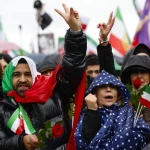The government has increased the grant paid to the beneficiaries of Livelihood Empowerment Against Poverty(LEAP) from GH₵ 14.75 to GH₵ 95.19 bi-monthly per household.
Finance Minister Ken Ofori-Atta disclosed this whilst presenting the 2023 annual budget before Parliament for deliberations and approval.
The LEAP programme since its inception in 2008 has brought hope to the most vulnerable citizens in the country due to the stipends provided to cushion their households against poverty.
Addressing the Legislative House on the government’s social interventions to support the vulnerable and less privileged in the country, Mr Ken Ofori-Atta said ” the Livelihood Empowerment Against Poverty (LEAP) Programme has since its inception in 2008, supported extremely poor and vulnerable households; increasing beneficiary coverage from 143,552 in 2015 to 344,389 households comprising 1,827,035 individuals as of September 2022″.
“Government is committed to expanding coverage to all 2,500,000 extremely poor individuals as estimated by the Ghana Living Standards Survey (GLSS 7) by 2024. While improving efficiency through digitalisation and assessment, Government will, in 2023, increase the value of the LEAP grant from the average of GHC 41.75 per household to GH¢95.19 bi-monthly”, he noted.
Before the pronouncement of the increment in the LEAP grant today, the government had already started paying the grant arrears for the LEAP beneficiaries from April 2022 to date.
According to the government, the payment will be for the 75th and 76th cycles, and to 344, 786 beneficiary households.
A statement signed by Mr Myles Ongoh, Head of the LEAP Programme said “beneficiaries would receive double their usual bi-monthly grant amount for the 76th cycle”.
That, it said, was due to the delay in the payment of the 75th cycle cash grants. The statement said beneficiaries would be paid their social cash grants through E-zwich at designated pay points in their respective communities and the premises of the participating financial institutions.
The Programme is to smoothen consumption, promote access to social services through linkages and stimulate behavioural change toward productive activities by the provision of cash grants to extremely poor and vulnerable households.
It said the current beneficiaries were “means-tested to be extremely poor, elderly, 65 years old and beyond support.”
The rest, it said, were orphaned and vulnerable children, persons with severe disabilities who could not work, and pregnant women or mothers with children under age one”.
















